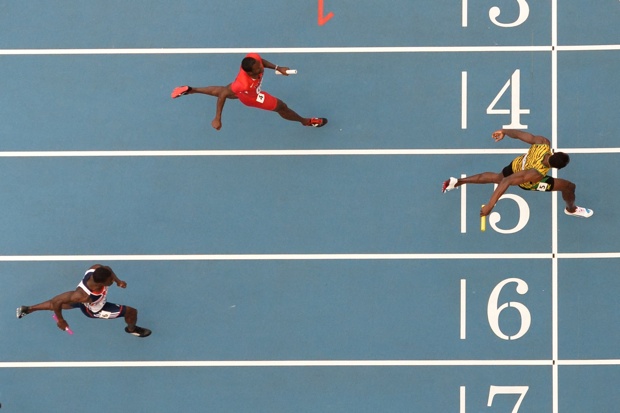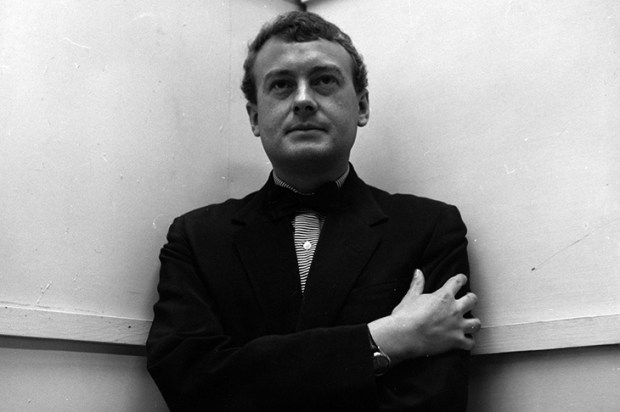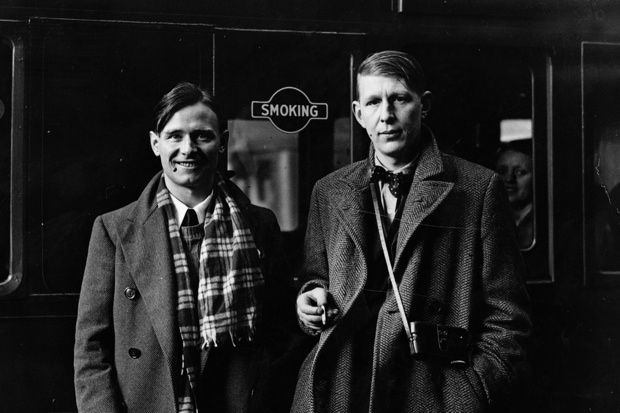What makes someone the fastest man on earth? The current tenant of the informal title held by such sporting icons as Jesse Owen and Carl Lewis starts with a version of the pastoral. Here is Usain Bolt as a child of nature, running free in the wilderness near the remote village that was his birthplace in Jamaica, plucking yams from the ground and bananas from the trees, body-building by carrying buckets of water home from the stream, and kept on the straight and narrow by regular ‘whoop-ass’ from his father.
But nature needed nurture, and life suddenly became more serious. ‘The Champs’, a national competition for schoolchildren which had a profile equivalent to the Cup Final in Britain, was Bolt’s launch-pad. He acquired a savvy coach in Glen Mills and he submitted himself to a training programme which often left him spent and vomiting by the side of thetrack, a victim of recurrent pain in his ankles, tendons and legs, compounded his scoliosis, a spinal malady.
Unusually for an athlete, as he matured, he ran shorter rather than longer distances. He started to race the 100 metres only six years ago as an experiment. Within a year he had broken the world record for the sport’s blue riband event. And he enjoys one critical physical advantage. The most significant statistic in the book is that he covers 100 metres in 41 strides to his opponents’ 44. If he can unwind himself at the start, he will win.
Bolt is a mixture of confidence and modesty, appreciating his status as a sporting legend, but in awe when he meets the footballers of Manchester United and the odd Hollywood actress or leading model who inhabit planet celebrity. He has the gift, essential to all truly great athletes in any sport, of upping his game rather than choking at the major global events. He has no unexpected hinterland; he revels in dancing, partying and — though this is no kiss-and-tell story — sex as a counterpoint to serious competition. This lifestyle balance has brought him so far six Olympic gold medals and three current world records.
He discusses his rivalry with his sprinting contemporaries, Tyson Gay, Asafa Powell, Yohan Blake and Justin Gatlin, and the mind games he plays with them. Each member of that quartet has at one time or another faced doping charges. Though Bolt came to world prominence only after his success in the 2008 Beijing Olympics, he has had a competitive career for over a decade, during which he has survived without suspicion endless tests for prohibited substances — which chicken nuggets, his favourite plat du jour, are not. It is his innocence, coupled with his speed, spontaneity and showmanship, that has kept the sport of track and field alive.
His collaborator, Mark Allen, injects pace in this memoir, transcribing his subject’s reflections into a credible vernacular. As Bolt himself would say, ‘Yo Allen.’
Got something to add? Join the discussion and comment below.
Get 10 issues for just $10
Subscribe to The Spectator Australia today for the next 10 magazine issues, plus full online access, for just $10.
You might disagree with half of it, but you’ll enjoy reading all of it. Try your first month for free, then just $2 a week for the remainder of your first year.














Comments
Don't miss out
Join the conversation with other Spectator Australia readers. Subscribe to leave a comment.
SUBSCRIBEAlready a subscriber? Log in